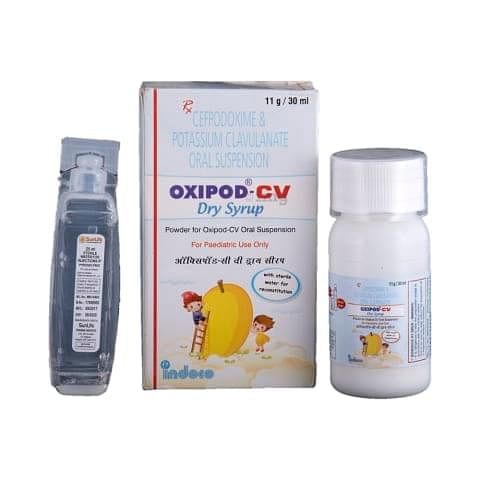
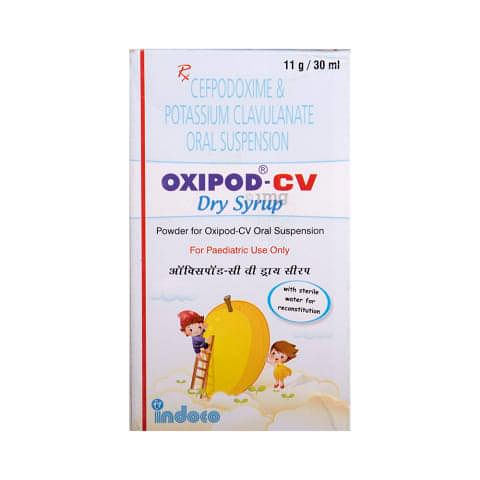
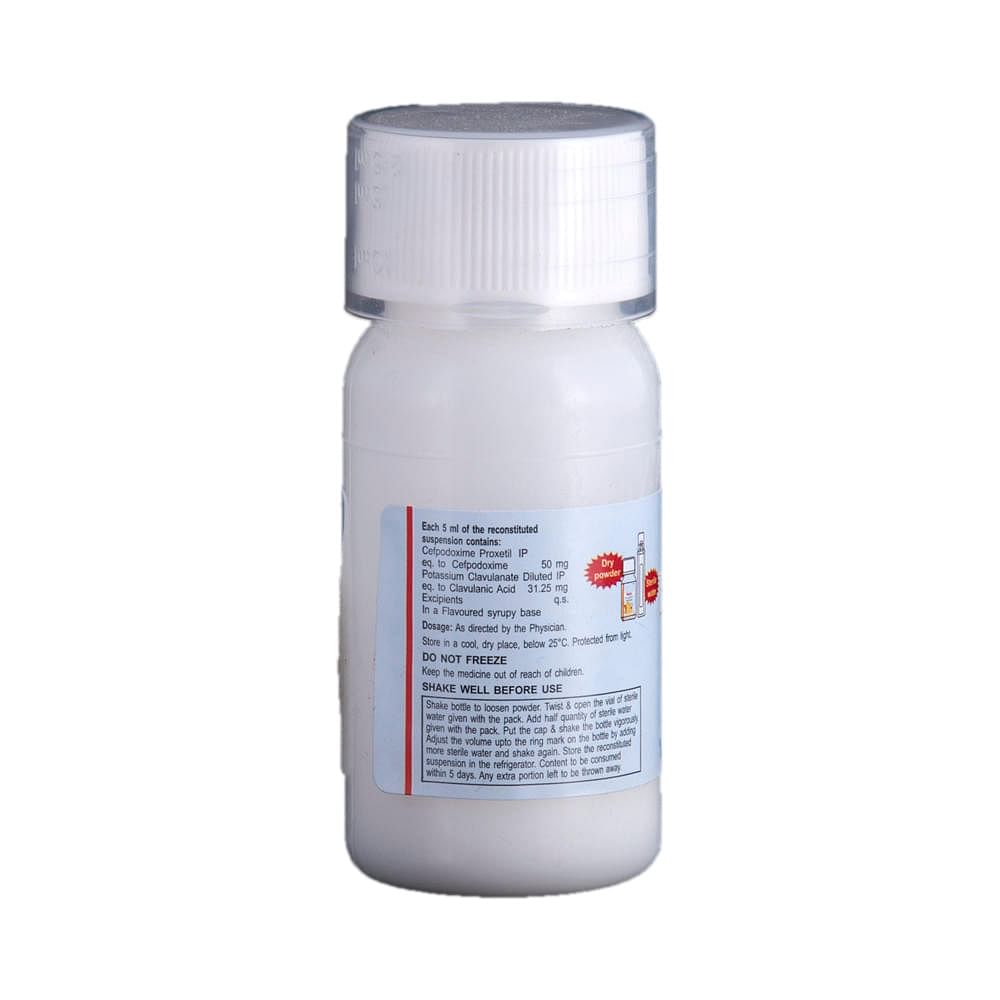
Oxipod-CV Dry Syrup
Manufacturer
Indoco Remedies Ltd
Salt Composition
Cefpodoxime Proxetil (50mg) + Clavulanic Acid (31.25mg)
Key Information
Short Description
Oxipod-CV Dry Syrup is a potent antibiotic used to treat severe bacterial infections in children, targeting the ear, throat, lungs, skin, and urinary tract.
Dosage Form
Powder for Oral Suspension
Introduction
Oxipod-CV Dry Syrup is a combination of two active medicines, Cefpodoxime Proxetil and Clavulanic Acid. It works by inhibiting the growth of bacteria, thereby preventing the infection spread. It is given to children to treat a wide range of severe bacterial infections.
Directions for Use
Oxipod-CV Dry Syrup is given to children to treat severe bacterial infections. It is important to complete the entire course of antibiotics as prescribed by the doctor.
Safety Information
Side Effects
No common side effects listed
How it works
Oxipod-CV Dry Syrup is a combination of two medicines: Cefpodoxime Proxetil and Clavulanic Acid. Cefpodoxime Proxetil is an antibiotic that works by preventing the formation of the bacterial protective covering, which is essential for the survival of bacteria. Clavulanic Acid is a beta-lactamase inhibitor that reduces resistance and enhances the activity of Cefpodoxime Proxetil against bacteria.
Quick Tips
Complete the entire course of antibiotics as prescribed by the doctor Encourage your child to drink plenty of water in case diarrhea develops as a side effect Never give Oxipod-CV Dry Syrup until and unless prescribed by the doctor Do not give Oxipod-CV Dry Syrup to treat common cold and flu-like symptoms caused by viruses Stop Oxipod-CV Dry Syrup immediately if your child develops an itchy rash, facial swelling, or breathing difficulty
Related Medicines
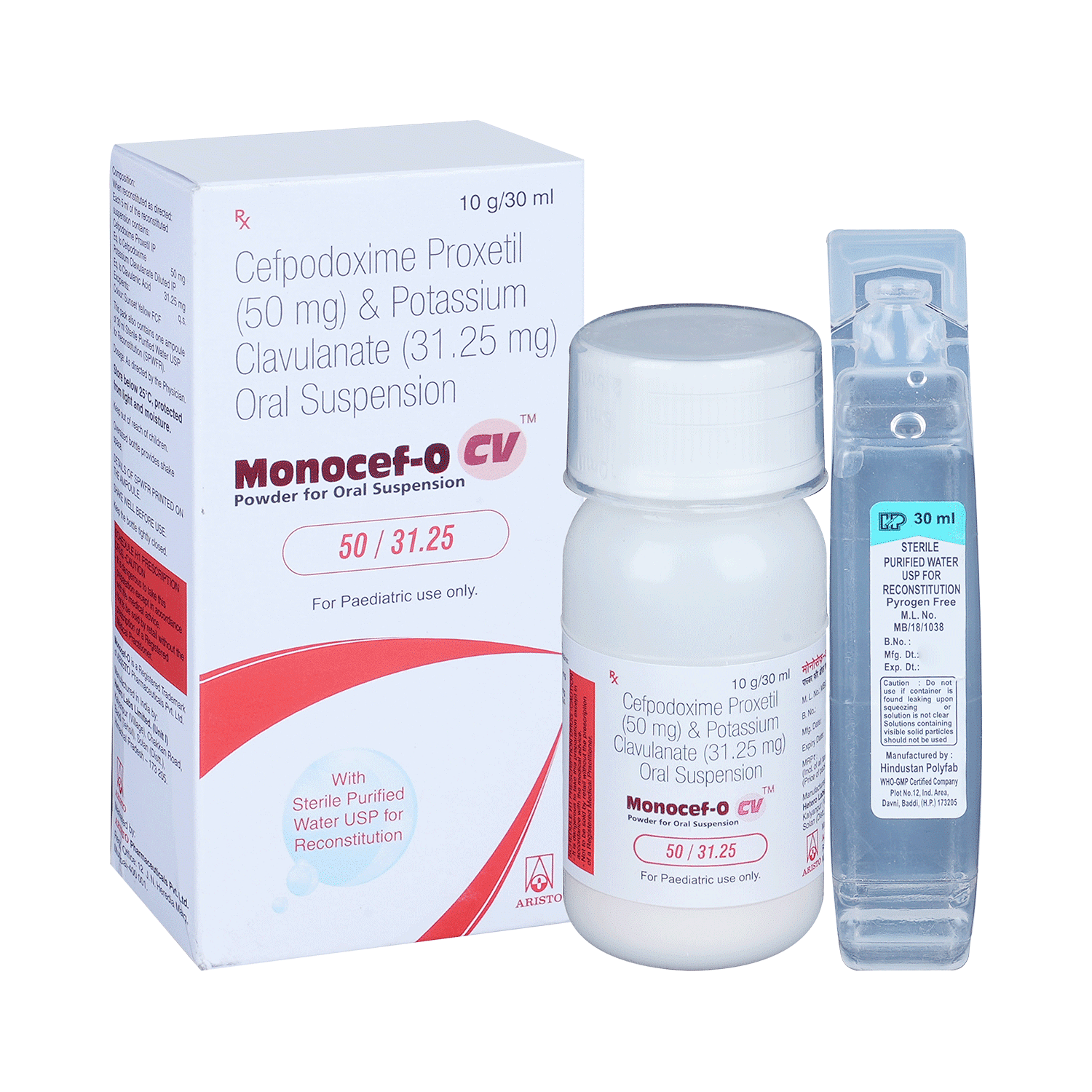
Monocef-O CV 50/31.25 Dry Syrup

Mepodox-CV Dry Syrup
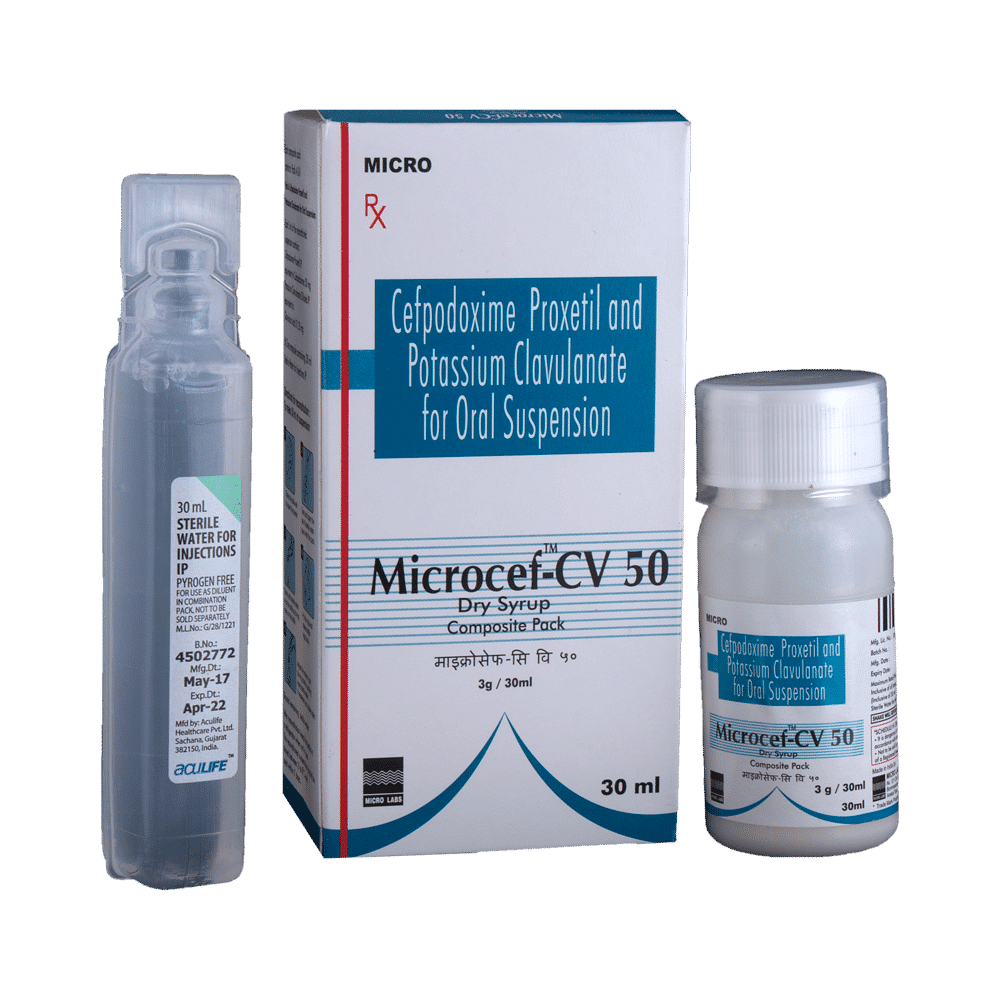
Microcef-CV 50 Dry Syrup
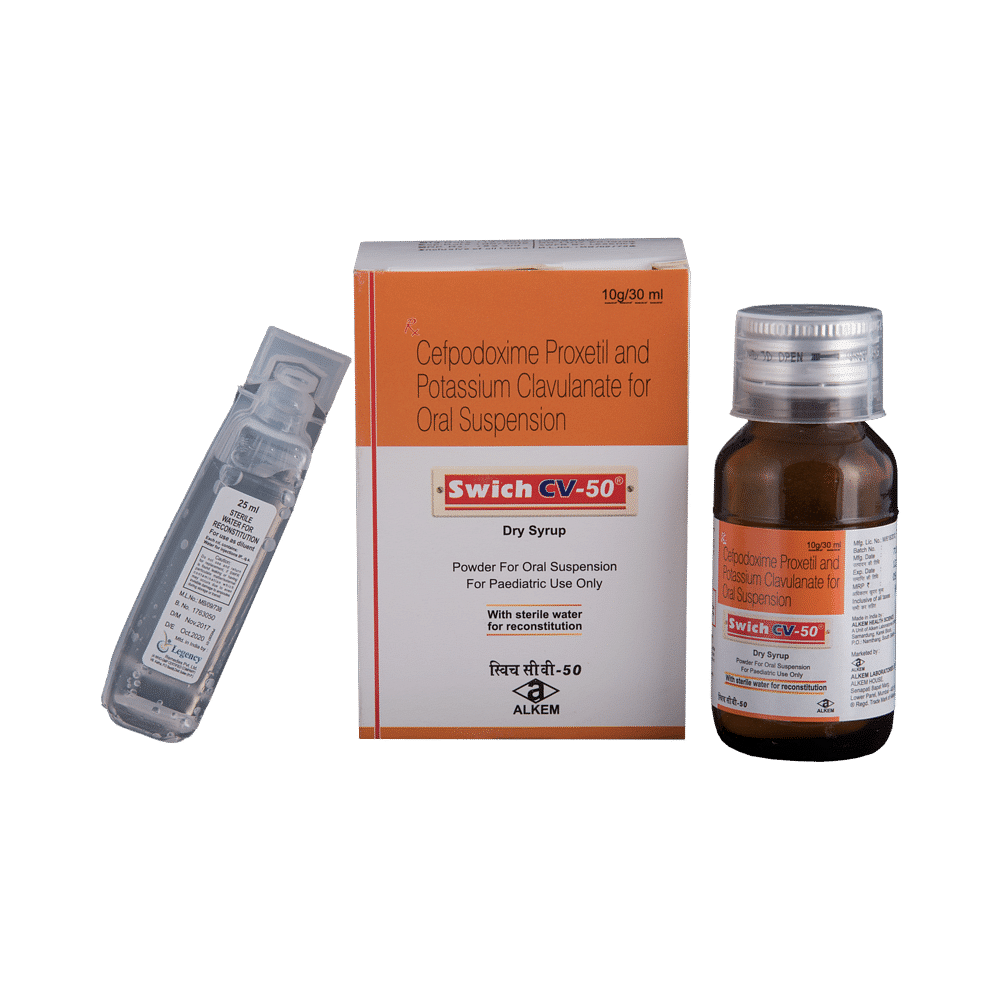
Swich CV 50 Dry Syrup

Swich CV 50 Dry Syrup Pineapple
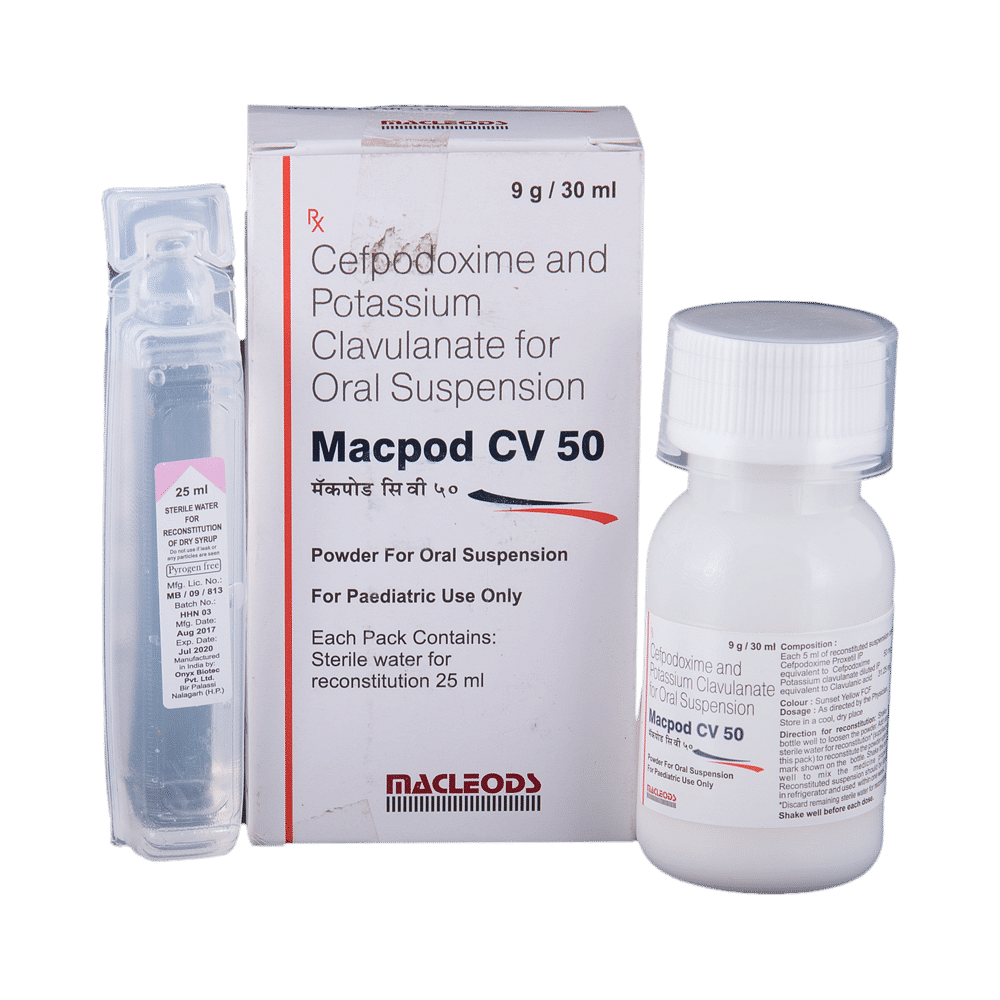
Macpod CV 50 Powder for Oral Suspension
Frequently asked questions
What if I give too much Oxipod-CV Dry Syrup by mistake?
Oxipod-CV Dry Syrup is safe and usually an extra dose wouldn't cause harm. However, it's important to contact a doctor immediately if you suspect your child has taken more than the prescribed dosage as overdose may increase side effects or worsen their condition.
Are there any possible serious side effects of Oxipod-CV Dry Syrup?
Serious side effects may include persistent vomiting, kidney damage, allergic reactions, diarrhea, and severe gastrointestinal infections. It's vital to consult your child’s doctor immediately if you experience these symptoms while taking this medicine.
Can other medicines be taken at the same time as Oxipod-CV Dry Syrup?
Oxipod-CV Dry Syrup may interact with other medications. It is crucial to inform your child's doctor about all medications they are currently taking before starting Oxipod-CV Dry Syrup. Consulting a healthcare professional is also essential before giving any medicine to your child.
Can I get my child vaccinated while on treatment with Oxipod-CV Dry Syrup?
Antibiotics usually don't interfere with vaccine ingredients or cause adverse reactions in children who have recently been vaccinated. However, it’s recommended to hold off on vaccinations until the illness has been treated completely. Once your child feels better, you can give them a vaccination as per their doctor’s advice.
Which lab tests may my child undergo while taking Oxipod-CV Dry Syrup on a long-term basis?
The doctor might order kidney and liver function tests periodically to monitor your child's condition while on long-term treatment with Oxipod-CV Dry Syrup.
Can Oxipod-CV Dry Syrup impact my child’s digestion?
Children often have sensitive stomachs, and taking antibiotics can worsen their digestive problems. When antibiotics are administered, beneficial bacteria in the gut may also be affected. Oxipod-CV Dry Syrup's ingredients might further contribute to this imbalance by killing both harmful and beneficial bacteria. If your child experiences diarrhea while on Oxipod-CV Dry Syrup, do not stop the medication abruptly. Instead, consult with a doctor for guidance regarding the next steps. In some cases, the dosage of the medicine may need to be adjusted.


